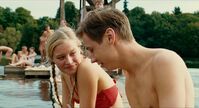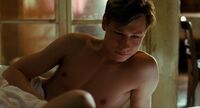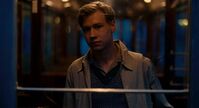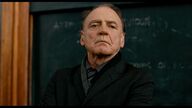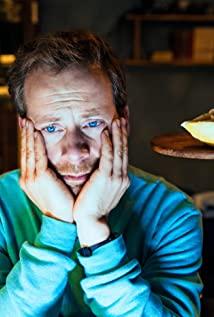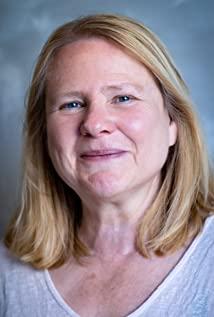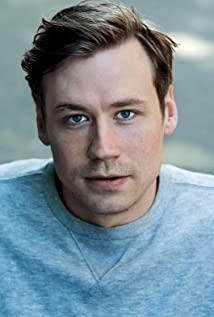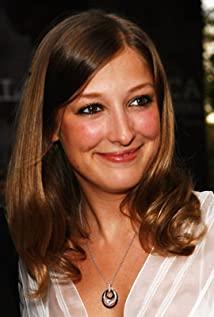The film asks the question more intuitively than the original book: What attitude should the post-World War II generation hold in the face of the crimes committed by their parents?
Misha's love for Hannah is sincere, but when Hannah's SS background is revealed, everything becomes unimaginable.
There are some post-reading questions attached to the original book of the novel, which are also applicable to this movie. For example:
Is Hannah guilty? Is it possible that she can get away with just admitting that she is illiterate? Is Misha guilty? Did his story put him on trial? Or is it self-judgment? If Hannah is guilty, what is her guilt? Why is she unwilling to tell the fact that she is illiterate in order to get a lighter sentence? Are anyone other than the protagonist also guilty? At the end, why did the survivors of the concentration camp reject the money that Hannah left her in her will, and simply left the tea tins? And what impact does this life experience have on the protagonist Misha's views on law and justice?
These questions, I think every audience will have their own judgments~
After watching the film, my own thoughts are like this:
Hannah lacks the ability to think deeply because she is illiterate, so when the judge asked her why she locked the church door When three hundred prisoners were burned alive, she answered succinctly because that was her duty. In this regard, she will not self-condemn and humanistic reflection like a knowledgeable and literate person-because she doesn't know what it is, she can't condemn and reflect.
But on the other hand, Hannah worships knowledge, and she always has a reverence for the protagonist Misha and Misha's father (both of whom are intellectuals) - because they know more than she does. There is a regret in the movie, it did not interpret a plot that can best express Hannah's mood in the book: Misha skipped school one day to find Hannah. When Hannah found out, she angrily reprimanded Misha. summer. She acted like she was selling tickets on the bus (she was a conductor by profession) and said angrily, "If you don't do your homework, you'll never come back. What? Do homework is an idiot? Idiot? That What do you think of selling tickets and punching holes?...Two at Hobah Station! Who doesn't have a ticket yet?...Idiot? You don't even know what an idiot is!" There is also a very vivid plot in the book, The movie was also passed for some reason: Hannah went to Misha's house and saw the book written by Misha's father, she excitedly asked Misha to read it to her, even though she didn't understand the two philosophy books at all. After reading it, she asked Misha, "Will you write a book like this one day?"
The overall filming of the movie was good. The lingering love between a teenager and a middle-aged woman, as well as the pure love of the two reading life in the interlaced lust... They are mother and son when they are in love, but when it comes to reading time, they truly become equal lovers. At this time, Misha's age was raised by reading itself, and Hannah's physical maturity was also made younger by reading - she really lived at the same age as him.
Speaking of movie actors, I think Kate Winslet's acting has never disappointed me. This time, she brought the image of the female SS member to life: on the one hand, she has the pride and rigidity of German women in the Nazi era, and on the other hand, she also exudes uninhibited and wild flames in her heart. I like to see Winslet walk with arms and legs spread in the film, that figure is a little rough, but it makes me fall in love... In comparison, the male protagonist is a bit inferior. But he looks cute, which is true (Vaguely, I just think he looks like Huang Lei.).
Well, let's just comment on the movie here. As for the novel, I want to write another one. But this book should give me some time to read it again, because there are still many parts of it that I don't understand very well.
View more about The Reader reviews



